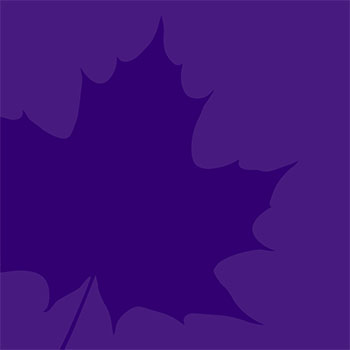We use cookies on this site to enhance your experience.
By selecting “Accept” and continuing to use this website, you consent to the use of cookies.

Starting university is an exciting journey, but unexpected challenges can sometimes make it difficult to stay on track academically. If you need to take time away, whether for health, personal, financial, or academic reasons, you are not alone. Many students find themselves needing to step back during their time at Laurier, and there are pathways to support every individual situation and help you succeed.
The Dean of Students Office is here to assist students who are struggling to find the right way forward when extenuating circumstances impact their ability to engage in academics.
Below, you'll find more information on available options and resources to help you navigate any disruptions you may face based on the length of your absence. It is important to remember that for official academic guidance, you should always consult with your academic advisor to ensure you are making informed decisions about your academic career.
When you are not well enough to attend class or engage in academics for a few days, in lieu of medical documentation, the Illness Self-Declaration Form can be used to request short-term academic consideration for course work due to medical reasons. Upon submission of the form, it is important to follow up with your instructor to inquire about any flexibility for assigned course work, missed midterms, or class participation. Check your syllabus for any policies related to missing course work.
If you are not able to engage in academics for 1-2 weeks, and you feel as though you will be able to return to your course work, you should talk to your instructors as a first step.
If the circumstances are sensitive in nature and you are not able to share the details of your circumstances, or if you are medically unable to contact your instructors yourself, you can connect with the Dean of Students Office for elevated personal support in navigating your circumstances and notifying your instructors of your absence, on your behalf.
If you are experiencing a disruption because of an injury, surgery, or an ongoing medical situation, and your recovery is anticipated to last more than two weeks' time, it is recommended that you inquire about academic accommodations through Accessible Learning.
Generally speaking, once a student misses more than two weeks of course work, it can be extremely difficulty to catch up, especially if the circumstances are complex or if you are still recovering from a medical condition. In these situations, we recommend students meet with their academic advisor to discuss their academic options.
In situations where you are considering voluntarily withdrawing for more than one term, one of your first consultations should be to meet with your academic advisor to discuss the potential of a leave of absence. Your academic advisor is best suited to help you understand any implications to your academic status, registration, and program progression, as well as any specific processes to complete depending on your program and year. Review more information about voluntarily withdrawing from Laurier.
If you are an international student, before reducing your course load, you must first consult with an international student advisor to understand any implications to your studies and complete any necessary processes.
When you begin your university journey, you may not anticipate needing time away from your studies. However, stepping back can be an opportunity to prioritize your well-being, reassess your goals, and return with renewed focus.
If you are looking to return to studies after taking a temporary leave of absence, there are several resources that are helpful to consider after being away from studies:
Successfully returning to studies after time away is possible with the right tools and support. If you are facing complex challenges or if you need assistance in getting connected to multiple resources, or establishing a plan for support moving forward, the Dean of Students Office is available to help provide individualized support.